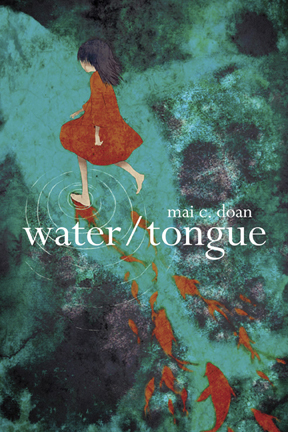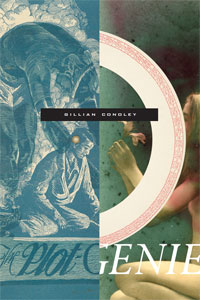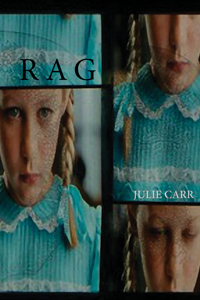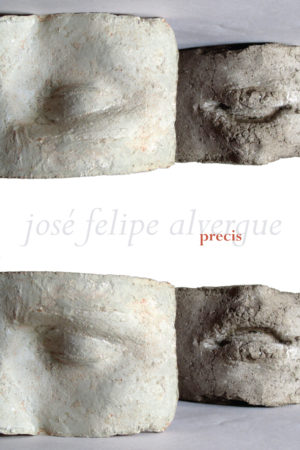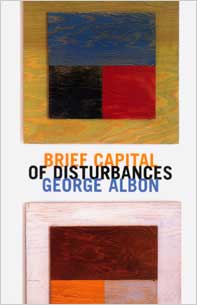Description
Elegiac poems that offer a glimpse of the possibilities beyond and in spite of the narrative
Ignited by the suicide of her great grandmother, mai c. doan conjures the visceral, the intuitive, and the felt to give voice to the gendered and intergenerational impacts of violence, colonialism and American empire. Out from silence, water/tongue crafts a constellation of voices spanning time, geography, and dimension, illuminating a pathway for both healing and resistance—for both poetry and sharpened teeth.
A compelling examination of the diasporic body in an uncertain landscape, water/tongue enacts the ancestral, the matriarchal, and the ritual by way of witnessing the self. Through a critique of the American dream, mai c. doan gifts us with a resilient voice seeking out truths in the historical to question “why the dead are more alive than the living.” These carefully crafted lines embody a language of remembrance that becomes a way of holding space for the both living and for the dead, “until the dead is swept up / and the dead is not / dead anymore.”
Mai Der Vang, author of Afterland
I’m impressed with the carefully-precise density of mai c. doan’s full-length debut, water/tongue, an exploration on loss, trauma, being, ritual, cultural identity and history, and the crushing impossibility of forced cultural assimilation, one that displays itself through, among other traumas, pure erasure… There is such care and heartfelt precision in doan’s water/tongue, a full-length book as much as it is a single, book-length suite on her grandmother, and the enduring resistance of generations of women to a variety of oppressors, from culture to language to patriarchal to the unknown and even unseen… Part of the power comes for how soft she treads, how lightly she manages to articulate such heavy material.
Reviews
About the Author
Interview
Excerpt
mai c. doan is a poet and writer from Southern California. She has published and performed her work though the National Queer Arts Festival, Entropy Magazine, Mixed Up!: A Zine about Mixed Race Queer and Feminist Experience, RADAR Productions, and more. She holds an MFA from Mills College, where she attended as a Community Engagement Fellow.water/tongue (Omnidawn, 2019), her first full-length poetry collection, is a 2020 Lambda Literary Award nominee. you can connect with her at maicdoan.com.
An interview with mai c. doan
(conducted by Phuong T. Vuong for TIMBER)
Phuong T. Vuong: So mai, congratulations on your first full length book water/tongue coming out on Omnidawn Press! I’m grateful to have known, worked, and written alongside you for almost a decade now. And these days, we are privileged to make time and connect through our creativity, in particular poetry. One of the first things that struck me about your collection is how confidently it uses space on the page. It’s as if space connects the pages– large interstitial pauses. Can you say more about how space fits into the book’s exploration of family and history?
mai c doan: Thank you, Phuong, for your questions and for inviting me to do this interview. It feels really special to have this conversation with you after knowing and growing alongside one another for yes, almost 10 years now!
My exploration of family and history is grounded in fragmentation, loss, and imagination. Because of things like war, premature death, colonialism, assimilation, and language loss, there is no “whole” story to tell. There is a lot that doesn’t exist in the English language (yet) and there is a lot that has never been articulated. When I am writing, I am attempting to articulate with everything I have in me, in all of the languages I know and that come naturally. This includes silence and spaciousness.
In water/tongue and much of my writing, space is what allows me to tell a truer story; it’s what allows me to reflect the experiences I am trying to represent in a way that feels most honest for me. Space is as much text as the words that are written. And in some ways, there’s a lot more that is yet to be revealed or that has yet to be imagined in those spaces. Silence isn’t always empty or quiet. In fact, it usually can be quite loud and overflowing. I feel similarly about the space between text in my book.
PV: The collection is interested in memory but also obscures it, makes it anonymous, and difficult. Can you talk about the meaning of this?
md: Memory is obscured, anonymous, and difficult in water/tongue because that has been my relationship to memory. Because of individual and collective pain, there is a loss/lack of documentation. There were no photo albums growing up and there were no real accounts that represented my own and my families’ experiences as I grew up in the U.S. I think this is why I rely so much on the intuitive and the felt. Just because things weren’t told to me or I didn’t read them in textbooks, doesn’t mean they don’t exist; doesn’t mean I don’t have memory of them in my body and (sub)consciousness; and doesn’t mean they don’t arrive within me and the world around me in other ways.
As a mixed-race queer person—my dad came to the U.S as a refugee from Viet Nam and my mom migrated here from Mexico in the 70s—I haven’t had a lot of history available to me. There are systemic and also familial histories as to why. In addition, growing up only speaking English at home, at a deep level, language loss is where that sense of anonymity comes from. To recover your ancestral and familial lineage from the language of the colonizer ensures a certain distance and barrier. This lack and distance is what I grappled with the most and is one of the themes at the core of water/tongue. In a sense, through the book I am asking why (this lack and distance). And I am also trying to answer and recreate connection.
PV: Your section entitled “EXTRACTIONS” is all capitalized, as opposed to the lowercase that is applied throughout the book. I couldn’t help but think of how you are smashing the reading of Asian American women’s poetry in particular as “soft” and “quiet.” Can you tell us more about your decision to use capitalization?
md: Haha, I can’t tell you how many times my work has been called quiet. I do think that was a motivation for me– to think about how to make my work be read as LOUD. So yes, I do think this was part of the reason why I started using capitalization. I think part of me felt bratty about it, like IS THIS LOUD ENOUGH FOR YOU? But also, I think capitalized text also carries and elicits a different emotional response than lower case text; they are different volumes and do such different work. And so, similarly to using space, I felt into using capitalization (or not) as a way to express different energies and emotions on the page.
PV: I’d love to know more about your process for writing the collection. How do you apply ritual and the body to your writing process?
md: water/tongue is an interrogation of intergenerational trauma as much as it is an interrogation of the process and practice of radical healing. Writing and ritual, grounded in my relationship to my body (which carries the stories of the bodies I have come from), are at the core of this process and practice for me. My writing process goes beyond the moments when I actually write. It’s taken me about 3 years to complete water/tongue. Over those 3 years, there were periods where I couldn’t look at the work at all, and there were periods where it was all I could think about. And the times when I wasn’t actively writing were necessary pauses for my own personal and creative recalibration. And during those times, I slept, wept, struggled, changed, became more of some things and less of others.
In many ways, I see the past few years as one long ritual grounded in the intention of intergenerational healing through the writing of this book. Lots of therapy. Altar making. Prayer. Hot showers. Baths. Moonlight. Sun. Salt water. Ocean. There have been many times when I have asked for a vision for this book to come through to me in my dreams. And many times when my dreams have answered. I think allowing ourselves the spaciousness to more deeply develop a sacred connection to ourselves is so important to both the poetry and world we want to create.
PV: I’m curious, with both ritual and poetry, how do you approach the work holding what came before—like lineage and tradition with new creation—like invention and experimentation?
md: water/tongue is as much of a recovery as it is a reimagining and retelling. I was once told by an older Vietnamese man from Viet Nam that I wasn’t Vietnamese because I didn’t speak the language. That’s not a mentality that I adhere to. I understand it, but it’s not one that gives me much room to exist. I think lineage and tradition are so special and sacred. And not all of us have the privilege of accessing our lineages and traditions in ways that make us legible as members of those lineages and traditions. But we still exist. We create. And we re-create. I think that this is where my queerness, my mixed-race experiences, and the radical communities I have been a part of have taught me a lot. How to alchemize lineage and creation; how to survive with tradition and invention. And deep down, I can hold that I am a complex yet important part of a complicated history. And I owe it to myself to make space for myself even if others cannot; my ancestors aren’t judging me, they are rooting for me.
PV: To move into the broader landscape of writing… TIMBER is an experimental literary journal. I think literary experimentation is a frustrating topic for many writers of color because of the binary created between our writing and avant garde writing, which has been conceived and reinforced as a white, male, straight camp of writers. I’m curious how you define experimental poetry. What is it to you? How do you see yourself in relation to experimental poetry?
md: I have a lot of thoughts about this and also am grateful for the work of many genius writers of color who have come before me that have grappled with this as well. I think you’re right in that “Experimental” or “Avant Garde” as they exist in the literary community exist in an unfortunate proximity to whiteness, which make it complicated for writers of color to identify or not identify as experimental or avant garde.
I feel exhausted from, and resistant to, talking around a white center; to articulating myself and my writing in relation to white norms and definitions. The reality is the work of Black writers, indigenous writers, and writers of color has always been at the forefront of innovation, creativity, and disrupting normativity regardless of how we are labeled or label ourselves.
I think about writing as healing and surviving against so many things. So literary-ness, experimental or otherwise, doesn’t feel like priority. I think about what my intention is and why I write. As both a writer and otherwise, my intention is to stay grounded in my truth and to always become more free.
PV: You have a background in community organizing and currently work with an activist foundation, Third Wave Fund. What is the relationship between this work and your writing?
md: Language can be incredibly material and I think this is one important place where both writing and liberation work overlap. As humans and especially as writers, with whatever platforms we have, it’s important to be responsible and accountable to the material and spiritual impact of our work. My intention is to write against and critique things like colonialism, capitalism, and white heteropatriarchy as much as to radically vision, dream, and create. It’s important to me to do this in a way that is not in isolation, but instead is supportive and aligned with our interdependent visions for liberation.
I have learned so much from this work and from specifically Black, brown, and indigenous radical visionaries and movement builders—many who are also writers themselves—about interdependence, unlearning / undoing carceral logic and settler colonialism, and healing justice. I try my best to keep learning, reading, doing the work of listening and taking leadership from those directly impacted—whether that’s queer and trans sex workers of color, people on the frontlines of organizing against police and state violence, or indigenous folks fighting for environmental justice for us all.
And I’m always asking myself what my role is in this work, both in relation to my writing or otherwise. It’s an ongoing conversation I am having with myself and learning to have with other as well. This is one reason I am grateful for my experiences in community organizing and the ongoing work I get to do and connect with through the Third Wave Fund, for the avenues they create for continuing to stay engaged.
PV: Finally, what are you working on, reading, or obsessing about these days?
md: Currently I’m working with Omnidawn to materialize water/tongue which has been incredibly exciting and surreal. Through the editing process, different pockets have opened up for me around what else still needs to be written into, areas that just began to speak through water/tongue, so I am looking forward to seeing where that goes. I’ve been reading the Wrinkle in Time series and loving it. On deck to read next: Jackie Wang’s Carceral Capitalism and my friend Mónica Gomery’s full-length poetry collection Here Is The Night And The Night On The Road.
PV: Thank you so much mai for your time and inspiration! Everyone should pick up water/tongue, out Spring 2019 on Omnidawn Press.
from dust
II.
here is the house. here is the kitchen. here are the orange trees
that just bloom and bloom and burst. on top of the house, a crack.
where the rain wilts through.
here is the bathtub.
not the first.
hair tangled in the drain.
hair keeps falling out.
i sweep. and sweep. and sweep. and sweep.
until the dead is swept up
off the floor.
i sweep and sweep and sweep.
until the dead is swept up
and the dead is not
dead anymore.
4:30 am:
i make a tiny dirty body.
i make a tiny dirty body from all
that is left behind from
all that falls off from
all that falls off and gets left
behind.
8:00 am:
i sleep in this tiny dirty body.
i blow into it and watch it fly.
tiny ashes.
tiny stars.
tiny dust settles
and sticks to tiny walls.

